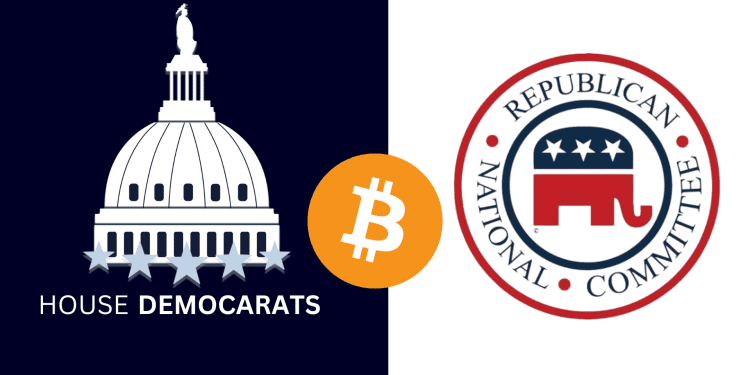• The U.S. House of Representatives passed its first significant crypto regulation bill
• The bill’s passage passes the crypto baton to the Senate
• Odds remain low for decisive action in the Senate on the crypto legislation
The U.S. House of Representatives has passed a landmark bill that seeks to regulate cryptocurrencies and digital assets, marking the first major legislative move on crypto by Congress.
House Approves Bipartisan Crypto Bill
On May 22, 2024, the U.S. House of Representatives passed the Federal Information Technology Acquisition Reform Act (FIT21), which includes amendments on digital assets proposed by Rep. Patrick McHenry (R-N.C.). The amended FIT21 bill passed with broad bipartisan support in a 395-19 vote.
The bipartisan amendments provide a clear definition for digital assets and affirm the regulatory powers of the Commodity Futures Trading Commission (CFTC) over crypto derivatives. The amendments also require the CFTC and the Securities and Exchange Commission (SEC) to share information and coordinate on policy.
Proponents See Bill as Key Regulatory Milestone
The passage of the amended FIT21 bill is seen as a significant milestone for crypto regulation, as it is the first crypto bill to pass either chamber of Congress.
Rep. McHenry noted that the bipartisan support for the bill highlights the growing recognition in Congress that crypto and digital assets are here to stay. He said the bill would provide regulatory clarity for crypto innovators and protect consumers.
Other supporters said the bill strikes the right balance between fostering innovation and protecting investors. It provides guardrails without being overly prescriptive, giving agencies flexibility in regulating digital assets.
Uncertain Fate in Senate
While the House passage is a major step forward, the bill faces significant obstacles going through the Senate.
Senate Banking Committee Chair Sherrod Brown (D-Ohio) has been critical of crypto and could block the bill from moving forward. Brown and other Democrats want to see more aggressive crypto regulation and consumer protections.
Even if the bill makes it out of committee, finding 60 votes in the closely divided Senate will be challenging. Previous attempts at passing crypto regulation have stalled in the Senate.
However, the House passage keeps the momentum going for establishing a regulatory framework for digital assets. Crypto industry leaders will continue advocacy efforts to get legislation through the Senate. With bipartisan support growing, Congress may yet act to provide clarity and oversight to the fast-evolving crypto space.














